Wonder Women of Greek Myth: Hecuba and Leda Of all the queens in Troy and Greece, Hecuba and Leda hold a special place in my heart. They are the mortal matriarchs of the Trojan War epic. And they deserve their fair share of the limelight along with the likes of Helen, Clytemnestra, Andromache, and even Briseis. I wanted to talk about them side by side, because they share similar qualities as matriarchs of their prestigious families. We can glean quite a bit about our heroes and a mother’s love through their respective narratives. Hecuba and Leda are complex women, having suffered at the hands of the gods and their husbands. They fiercely love their children, almost to a fault. They’re complex and wise, powerful and tender, and uncompromising in their quest to establish control in their worlds. I’d like to take a wee side road about portraying the feminine role in ancient Greek mythology. I’ve been recently reading a paper by Emily Hauser, PhD and author of the Golden Apple Trilogy, about the ancient women’s voices echoed in modern fiction, and how it’s in the minimal space they’re afforded in the text that gives us the latitude to explore who they were, contemplating their motivations, goals, and achievements in their own right. (Emily Hauser’s paper “There is another story: Writing after the Odyssey in Margaret Atwood’s The Penelopiad” is available at her Academia.edu account.) It got me thinking about how privileged I feel to be writing about all the lovely female characters, which for the most part, hold pivotal positions in the most powerful stories, yet are relegated to being foils or temptations for the male characters, or the objects of illicit desires and subjects of kidnapping and rapes. So, let their voices RISE in modern song. QUEEN HECUBA is barely mentioned by Homer, yet she undoubtedly played a key parental role in raising Hektor, the greatest defender of Troy. In the tension between Hektor and Achilles, we see a mother’s deep devotion and agony as she’s helpless to keep her grown son safe from the notorious killer, Achilles. For a mother, there’s no such thing as forgetting that your child was once young. You carry them, suckle them, and in return they drank in your presence. Even as a grown man stands before you, rugged and bearded, shoulders wide enough to crush a bull—you can still see the little boy beneath the layers of years. Surely, Hecuba had that kind of bond with her son, Hektor. How might this relationship have evolved? How might she have influenced her son’s maturity and prince hood; his priorities, loyalties, and sense of responsibilities? And most importantly, by looking at Hektor’s story what can we hear Hecuba saying? We have to go back to the beginning. Hecuba was Priam’s second wife, who became the primary wife and mother to almost 2 dozen royal children. Hektor was likely the first child they had together, as well as the first son with Paris being the second son. Because Hektor was the first born, he probably remembered the baby Paris, who disappeared. Perhaps he knew exactly what happened, maybe not. It doesn’t really matter, only that he was there to witness the effects on his mother. He certainly would’ve remembered his mother’s grief and sadness, because prophesy or not a mother doesn’t forget a child she loses for whatever reason. Because Hecuba’s voice is silenced in the myth, we’ve freedom to explore what she felt by looking at her son’s marriage and her desperate efforts in the Iliad to persuade Hektor not to fight Achilles. I think Homer (whoever he/she was) understood the implied complexity of Hecuba and Hektor’s relationship on some level. Their marriages are mirrors of each other, and becasue of that we can see and hear a Hecuba more clearly. There’s the implication that Hektor knew the pain his mother carried after the baby was stripped from her arms and afterward, when King Priam took concubines, BECAUSE Homer gave Hektor’s wife, Andromache, a barren womb until the 11th hour. This is a stark contrast to his mother’s fertility and her having to accept the existence of multiple of wives and concubines. No doubt Andromache’s barrenness troubled Hektor for a couple of reasons. First, that he couldn’t father a son, or daughter. Secondly, his only viable option was to take another wife or collect concubines. He of all the princes should’ve had a brood of children to succeed him, if we take Priam’s example into account. So, why didn’t he take a second wife or take a concubine? This is exactly the dynamic I delve into in the Homeric Chronicles, giving us a clearer vision of WHO Hecuba was. In chapter 7, "A Prince and His Mother" I wrote: FIVE YEARS, HECUBA thought. Five years and the ache for the son she’d never known still throbbed painfully in her chest. She’d grown accustomed to the hurt. Watching her children romping in the courtyard, the queen sighed. Little Deiphobus entertained his younger twin siblings with his wooden sword and shield. The youngest, Polydorus, nursed at her breast. She’d refused a wet nurse for all of her children after the loss of her second son. Rarely did she allow her children from her sight. The ache for her second son pulled at her again, never giving her peace. In truth, some days she conjured the pain to remind her of his little face, and some days she cursed the sadness and prayed to Apollo and Artemis to wipe her memories of him. When Hektor appeared at the courtyard gate, she smiled widely despite her melancholy. He waved, making straight for her. Only he had the power to dull the hurt that had become as much a part of her as her hand or foot. The other children, although a source of joy, reminded her of the one she’d lost. Hektor’s presence was the only one not marred by grief. He was her Golden Prince. Hektor approached and kissed his mother’s cheek. “Mother,” he said, pinching Polydorus’ bare foot. The baby kicked at his eldest brother’s attempted affection. “Such a strong leg for someone so little,” he laughed. “You’re sad again, Mother. I can see it in your eyes.” Patting his arm with her free hand, she said, “Nothing can be hidden from my Hektor. Someday you’ll be a wise king.” Hecuba sighed, and her eyes found her son’s. “I’ll always be sad. I fear that if I’m not, I’ll forget him forever. And that would be worse. His memory is all your father left me of him.” She switched the baby to her other breast, adjusting his heavy weight in the crook of her arm. A commotion across the yard drew Hecuba’s attention. “Deiphobus! Be mindful of Helenus! Cassandra, move away from the fountain! Where is Tessa when I need her? Tessa!” From the balcony above them, Tessa called down to her queen, “Yes, my lady?” “Come! Take the twins and the baby. They must rest.” Deiphobus laughed at his younger siblings. Hecuba added, “And take Deiphobus, as well.” The boy threw his wooden armaments down, kicking the ground, and mumbled to himself. “Truth be told, I’m the one in need of rest.” She rubbed the side of her swollen belly. “It seems I am forever with child. How was your training?” Hektor placed his hand on the pommel of his short sword. “I’m much better with the sword than a spear.” Tessa came to take the children. The queen handed her servant a very sleepy baby. “My lady, he is a fat one.” The nurse cradled him carefully in her arms and steered the gaggle inside, leaving Hektor and his mother alone. “Where is my father?” Hektor asked. Hecuba stiffened. “Where he always is this time of day.” Hektor wrapped his hand around his mother’s, dwarfing hers. “I’ll have only one wife, Mother.” “We’ll find you a fine wife, Hektor. A beauty in heart, as well as face.” “If she’s as beautiful as you, I’ll be satisfied. But that is a long way off!” Hektor grinned, warming Hecuba’s heart. Taking his mother’s hand, he pulled her up. “Come. I want to show you my horse.” Hecuba stood reluctantly, putting a hand to the small of her back. “The stables are a long walk from here.” “It’s not so far. Besides, you smile more when away from the palace.” The stables dominated the entire southwest of the citadel’s lower levels. Spreading out as far as the eye could see, the horse fields were covered in tall, swaying grasses and low brush. From their vantage point, they could see horses running and kicking up clouds of dust. Pausing to admire the horses, Hecuba said, “Can you imagine Troy existing without horses?” “I wouldn’t recognize our city without them,” Hektor mindlessly answered. “Mother?” “Yes?” “I remember him, too,” he said quietly. Hektor was tall for a boy his age, standing nearly eye to eye with her with his curly black hair shining in the sun. He is the kindest soul. She wrapped her arm around his shoulders, pulling him close to her. “You’re truly Troy’s greatest treasure.” Hektor looked at his mother, beaming. “You only say that because you’re my mother. What else would you say?” “I say it because it’s the truth.” __________ In Troy Fall of a City, they attempt to tackle the effect on Hecuba of abandoning Paris to death. Their Hecuba is at a strange peace with the decision, even though she and Priam have kept the truth from everyone; she doesn’t blame Priam or even the gods really. In fact, Priam is more distraught than she is and it’s Hecuba who comforts Priam all the while, defending the decision. They’re portrayed as an intimate and passionate couple. I find this VOICE and portrayal of Hecuba, unsatisfying. Perhaps, it’s because it’s a masculine writer’s attempt to create a strong Trojan Queen that any true regret and lingering grief was glossed over. Perhaps, a mother tormented all her life by grief somehow made Hecuba seem to the modern masculine writer as weak? Women who’ve lost a child know that in the quiet grief of loss, their deceased children remain alive. The life their child should’ve HAD emerges at each anniversary of death with thoughts like—Today, I would’ve had a 5 year, a 10 year old, or a 15 year old, etc. That’s part of a mother’s strength, carrying and living with this particular pain. And this pain is echoed at any time with a loss of a child at any age. Hecuba’s most passionate and telling scene, as a woman and a mother to Hektor was also incomplete. At the end of the day, TFOAC stripped Hecuba down to a two dimensional character at best. The fact that Hektor never took a second wife is significant. In the Homeric Chronicles I explore his character as being a lifelong observer of his mother’s grief and heart break. He doesn’t set Andromache aside because he knows firsthand the grief his mother experienced at losing a child, and his mother’s pain at having to watch other women bear her husband’s children. If it was no big deal to have concubines and father children, then he likely would have because the Prince of Troy needed heirs. But we don’t even have whispers this was even in question. Perhaps, he observed his mother growing distant from his father, and didn’t want to risk losing Andromache’s love? Certainly, Hektor loved Andromache, but it was Hecuba, NOT Priam, who taught him HOW to love and honor a woman. As for Hecuba and Priam’s relationship? Hecuba would surely have been a devoted and dutiful queen to Troy, but I’ve left room for the woman behind the crown. I think it likely she’d blame Priam for the loss of Paris and her years of grief. Watching your husband father a brood of heirs by other women, could certainly create an emotionally distant wife. That’s the path I took anyway in the Homeric Chronicles. The most telling scene we have of Hecuba is in the end, when Achilles comes for Hektor. Hecuba has already lost several children to the murderous Greek and begs Hektor to stay behind the wall and live. Her agony at anticipating what his death would be, clearly evident. Fagles’ Iliad 22: 94-107 reads: "And his mother wailed now, standing beside Priam, weeping freely, loosening her robes with one hand and holding out her bare breast with the other, her words pouring forth in a flight of grief and tears: 'Hektor my child! Look—have some respect for this! Pity your mother too, if I ever gave you the breast to soothe you your troubles, remember it now, dear boy—beat back that savage man from safe inside the walls! Don’t go forth, a champion pitted against him—merciless, brutal man. If he kills you now, how can I ever mourn you on your death bed? Dear branch in bloom, dear child I brought to birth!—Neither I nor your wife, that warm, generous women…Now far beyond our reach, now by the Argive ships the rushing dogs will tear you, bolt your flesh!' So they wept, the two of them crying out to their dear son, both pleading time and again but they could not shake the fixed resolve of Hektor.” What happened to her son was worse than she imagined, one can only wonder how she survived the horrific scene. I think this image of a mother showing her breast is significant to Hecuba’s character. It’s a simple act carrying the most powerful message a woman can give without words. And to make my earlier point more clearly, Hecuba is addressing the mightiest warrior as “child” and “boy” not because she’s diminishing his prowess, but because as a mother her first instinct is to reach the little boy inside the man who she lavished her love and attention on, and who she was able to comfort. By examining Hektor’s life, we see a Hecuba who is stoic, resilient, and strong. A woman devoted to her children, especially her favorite son, Hektor, almost to a fault. And this bond between mother and son is most evident when, in her desperation to save him from merciless Achilles, she set aside her modesty in front of the court by literally pulling her breast from her gown showing it Hektor, calling him out to ease her agony by reminding him of what she’s given him all his life: love, loyalty, and support. Let’s turn to the Spartan Queen: LEDA is an intriguing character whose voice, like Hecuba’s, is mostly silent in the text. She’s the Queen of Sparta, wife to Tyndareus, and mother to four famous children: Caster, Pollux, Clytemnestra, and Helen. Yet, most of what we know of her is through her rape by Zeus and her quiet death. So, I guess the best place to start is with what Zeus did to her. So many works of art and literature have depicted the union of Leda and Zeus as “sensuous” or consensual—but I think it was neither sensual nor consensual. By the balls of Zeus, it was a giant swan. A flapping foul. How can being set upon by an animal, or rain, of a horse not be scary? And the bestiality of it, Zeus or not, is horrifying. By making it “sexy” we diminish the trauma Leda suffered. Furthermore, she’s assaulted not once but twice by my count. In the first 3 episodes, I debunked the 4 eggs in a batch theory, in favor of a more humanistic approach. There’s no way the brothers, Caster and Pollux, can be the same age as Helen, because they’re grown men when she’s a girl kidnapped for the first time. If you missed episode 1-3 where I talk about my ever-expanding a timeline, you go back and give them a listen. And because I don’t think the brothers were the same age, which means that Leda is assaulted twice by Zeus. Regardless, once would be enough to traumatize Leda, and this would definitely affect her future. In Song of Princes [Sacrifice], I write the rape of Leda for what it was: awful and horrifying. Zeus used Leda as a tool to dominate and control his world. Clearly, Zeus is a master at manipulating. He doesn’t have to lay with mortal women, yet he seems not to be able to control himself. He’s a serial cheater, who has no respect for Hera, his wife. In a way, Zeus is a mirror of Odysseus’s infidelities, whose cheating we minimize because of his being enchanted by goddesses. Zeus, on the other hand, is the enchanter, the aggressor, the predator. And that’s just not sexy, it’s unbalanced. The power difference between Zeus and his mortal conquests is entirely tipped in his favor, and the women have NO choice but to give him what he wants. That’s what makes his “union” with Leda rape. There’s no equality between Zeus and a woman, only what Zeus wishes to take. How would this experience affect Leda as a woman, queen, wife and mother? That’s what I thought about as I developed her character. I wanted to reconcile her humanity with the myth. Being raped by Zeus is no doubt a trauma. Leda feels degraded and defiant. It’s that reaction I use to build her into a resilient mythological woman. Leda understands her position in a patriarchal world. She knows she can’t fight Zeus or Tyndareus’ inevitable disdain for her violation. (On Tyndareus’ reaction, I took the Philip of Macedonia route where Philip was disgusted by Olympias after seeing her with Zeus in the form of a snake). She lives with his disgust, but must find her way to create her own world and what measure of control she can. Leda is a complicated, yet easy to understand. **disclaimer: these are show notes and may note contain everything said in the podcast Discover more about Queen Hecuba and Queen Leda in the Homeric Chronicles.
0 Comments
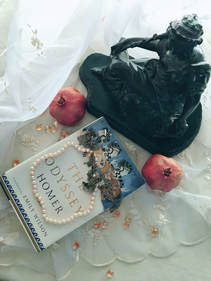
I AM reading Dr. Emily Wilson's English translation of the Odyssey. It's the first time a woman has translated Homer's work into English. The fanfare has just begun and rightly so. I'll probably do a podcast about her work, because I love it so much. I've read several translations and used them in researching my work for the Homeric Chronicles, but NONE of them has touched me like Dr. Wilson's.
For example, as everyone already points out, she begins with calling Odysseus a "complicated man." Brilliant, because Odysseus is complicated. He's not straight forward in anything he does. He's tender and loving with Penelope and Telemachus, but he's also a murderer and a man who "skirts" the boundaries of his marriage. He's vengeful, but with good reason. A trouble maker and a charmer. And stubborn. Let's not forget stubborn. Despite all this, we love to love Odysseus. Her word choices stand out for me, more than any other translation. Reading the scene where Odysseus is deciding when to kill the slave women (and mind you it's not a moral dilemma of IF he should, but a matter of WHEN he will kill them...this is one of the ways he's complicated: his ability to premeditate massive slaughter) builds such powerful imagery. I can see a mother dog guarding her puppies, teeth bared and growling at strangers. It's scrappy, fierce, and dangerous.
Dr. Wilson is equally descriptive with Penelope. I love the passage where Penelope has just been told that the suitors are plotting to kill her son, Telemachus. She's distraught because he left Ithaka without telling her and no one knows for sure where he is. So, she can't protect him. Her mind torments her like a trapped lion...What parent can't relate to that terrifying feeling?
She definitely spanked some magic out of Homer's Greek.
If you enjoy Greek mythology, you're going to love this new translation. I'm using it for all my podcasts on Greek Mythology Retold and for the continued research for the Homeric Chronicles.
(Disclaimer: these are my show notes. I do go off script when I podcast, but here's the basic framework)
Hello fellow myth lovers! I’m so excited to share with you the Greek world of the Homeric Chronicles. If you watched the movie Troy and loved it, or felt like you wanted more...If you’re currently watching the BBC One Troy: Fall of a City (or waiting for it to hit your Netflix playlist), this podcast is for you. You’re a Myrmidon. Basically, if you love Greek mythology in any form you’ve come to the right place. Shall we get started? When I first began toying with the idea it was...what if you could read about all the mythological stories as one seamless tale? I thought, what if George RR Martin was telling it? It would be EPIC! CRAZY HUGE! Can you imagine the cast of characters? It’d be a celebrity Who’s Who of the ancient myth-historic Greek world. And because I love these stories, I got to thinking...what if I wrote it? No way, I can’t do that. Then, I thought, you have a degree in history, why not try? And the Homeric Chronicles was born. That left me with the million dollar question: Where to start? How to begin? After piles of research, 25 gray hairs carefully dyed dark brown, and a bazillion cups of coffee later, I realized exactly where I needed to start: with Homer. But not just some retelling that was meant to get you to the “great war” or to take you through the bizarre journeys of Odysseus back to Ithaka...It needed to be MORE. Much more! But, Homer’s work in the Iliad and Odyssey definitely provide the backbone. I wove many other stories that touched on the characters in Homer’s work into the structure of the spine. The major heroes and heroines of Homer’s tales are entwined with so many other characters I had to dig deep, b/c it’s chronological, I had to make some hard choices. The original myth-makers weren’t worried about telling stories that made chronological sense outside of the story they were reciting. But for the Homeric Chronicles to be what I envisioned that’s exactly what I had to do. I wanted to include the regulars: Achilles, Paris, Hektor, Odysseus, Menelaus, Agamemnon, Helen, Hecuba, Cassandra, Andromache, Leda, Deidamia, Priam, Tyndareus, Peleus, Thetis, and Chiron just to name a few. And include characters like Palamedes, the poor guy who unfortunately pissed off Odysseus, Tantalus the first husband of Clytemnestra, Oenone Paris’s first wife, Peisidike the Methymnaan princess in love with Achilles, well, you get the picture. Now, I was tasked with putting the myths in chronological order, and keeping them all easy to connect with. It wasn’t until I fell in love with GRRM’s SOIAF that I knew structuring a story of this epic scale was possible. I take you along several characters’ journeys through five major kingdoms. And after the movie Troy ruthlessly cut them out (and I wonder if David Benioff wishes now that he hadn’t), I put the pantheon of gods and goddesses back in there. On to chronology: The first chronological hiccup involved Helen, Paris and Achilles. Let’s start with Paris, in particular: the Judgment of Paris. Most people familiar with the story assume that Paris gives the judgment of the fairest goddess to Aphrodite and leaves to Sparta not long after. But, it just doesn’t make sense that way, not in the context of the larger EPIC tale. Let me explain: The golden apple contest that caused the Athena, Aphrodite and Hera to seek Paris as the judge occurred at the wedding feast of Peleus and Thetis. These are Achilles parents. So, Achilles, the greatest fighter of all the Greeks has NOT been born yet. He’s the star of the Iliad. So, the judgment of Paris takes place soon after the wedding feast, before Achilles is conceived and born. Why does this matter? Because, we have to wait at least 15 to 18 years for Achilles to grow up, get trained, and father a son, Neoptolemus, BEFORE Odysseus can discover him on Skyros, dressed like a girl and call our hero into action. This means two things: Paris has to be at least 15-18 years old to be considered MAN enough to judge the goddesses (he’s not an 8 yr old judging 3 of the most powerful females in the story); therefore, Paris is 15-18 years older than Achilles. Most movies and books depict Paris and Achilles about the same age, or as in Troy make Paris much younger than Achilles. It’s all wrong. Paris is definitely Achilles’ elder. That raises the next logical question: When does Paris meet and woo Helen? Because that is the EVENT that brings the Argives, Achaeans, Danaans to Troy. Paris couldn’t have taken off with Helen any time soon following the judgment because that would mean Paris and Helen would’ve been in Troy for years before Menelaus even tried to get her back...B/C we’d be waiting for Achilles to get born and come of age. Even if you take the whole Paris and Helen get lost in Egypt into consideration that still leaves too many years in between the kidnapping and the attempted rescue. Remember, no matter what, Achilles has to be old enough to lead the Myrmidons and have fathered a child before he goes to Troy, as other prophecies depend on it.
My research took me to Apollodorus (a 2nd century AD compilation of ancient texts) which states in 3.13.8 that Achilles was 9 when he was taken to Skyros, because Odysseus was looking for him due to a prophecy by Agamemnon’s seer, Kalchus. There is some consensus that Achilles left Skyros at about 15. But let’s break this down chronologically and logically.
1. If Odysseus is looking for Achilles when Achilles is 9 and that’s why Thetis hid him as a girl, then he has to be hiding there for years before he’s old enough to get the princess Deidamia pregnant. So, for all these years, what are the Greeks under assembled under Agamemnon’s banner doing in Aulis? Twiddling their thumbs? Sewing sails? Getting sunburns? If the consensus is correct (and we have to make choices to be consistent) at least 6 years (give or take) have to pass until Odysseus finds Achilles. 2. I recall reading that there were TWO calls to war that met at Aulis...the first one which assembled the Greek tribes went to Aulis was a bust b/c they needed Achilles, so everyone went home and waited...then returned...years later? after Achilles was found? This doesn’t make any sense...it would’ve been a monumental feat getting that many ships and men from all across the Greek world assembled just once, but twice? And in all his searching, Odysseus never makes it back to Ithaka to sneak a little love time in with Penelope? I don’t buy it. 3. What makes sense in the human and mytho-historic terms is that Achilles is 9 when he goes to Skyros with Thetis fully aware about Achilles’ dual fate, and that some day he’d have a huge decision to make. When the call to Aulis came, 6 or so years later, that’s when Odysseus and Ajax find him. It gives time for him to grow up, father a son. I do give Achilles a few more years, rounding out his age at 18. Why? Because I used the historic figure, Alexander the Great, as a model. Alexander distinguished himself at Chaeronea at 18, so makes sense that a young man at 18 could indeed be seen to lead an army of warriors (Myrmidons). Well, Myrmidons, times up for today. Up next time let’s take a deeper look into Helen’s age and how placing her story in chronological sequence was challenging, but not impossible. For now-- What do you think about Paris being 18 years older than Achilles? that Helen couldn’t have been born at the time of the judgment? How do you think a comprehensive timeline will change up the Greek myths as you know them?
You can find out by reading the Homeric Chronicles
Song of Sacrifice and Rise of Princes Love to hear your thoughts, answer questions, and connect with my fellow Greek mythology lovers. Come on tweet me! Join my mailing list for updates and Greeky things! Until next time, let’s take the advice given to Menelaus in the Cypria: “know that the gods made wine the best thing for mortal man to scatter cares.” Drink your wine and be merry Myrmidons. Start the journey...
I’ve been trying to write the Homeric Chronicles for years. It started as a short story about Odysseus and Penelope. That morphed into this “brilliant” idea (rolls eyes) of 4 novellas focused on the 4 major heroes: Achilles, Hektor, Paris, and Odysseus. In all this uncertainty, I was only certain that I had a story in there (somewhere) to tell that was different from anything out there. I loved the Iliad and Odyssey. As I wrote, I realized the stories overlapped (like puppies in a basket) and wouldn’t progress the way I wanted them to. That’s when it dawned on me that although the Iliad and Odyssey are easily placed in chronological order, the other myths that bleed into the larger framework do not. Crap. Mind. Blown. The story soon took on a life of its own, oozing all over my desk with sticky notes, scribblings on the backs of envelopes, printed articles, and a pin board. I labored like Herakles to construct a linear sequence that wove Homer’s tales together and THAT’S what pulled in dozens of characters I had no idea I’d be writing about. Then, something unexpected happened. I found myself writing more and more about the women. Giving them voice and filling out their storylines. When I was in the middle of working on book three, Rage of Queens, it struck me (TO MY HORROR, I might add)—I was doing it wrong. (The good, the bad, and the ugly of self-publishing).
Feeling like a complete idiot, I was confused how to proceed. I took a huge step back to reflect. Literally, stopped writing. I needed to sort through everything about indie publishing: Was I even a writer? Was I even a storyteller? Should I walk away now? Then, I did what I usually do when I don’t know what to do: clean or renovate my house. (Can anyone else relate to this?) As I stared at my bare concrete bedroom floors, I knew it was time to tile. Bent over the floor, back aching, knees on fire...NOTHING! and I mean nothing happened. No epiphany. No light bulb moment. #F-word again.
By accident, I stumbled onto Alesandra Torre’s marketing class and Mark Coker’s Smashwords podcast. I found the encouragement to NOT give up and that indie authorship is fluid and flexible. I began a podcast (Greek Mythology Retold) which gave me a platform to talk about my research and character development. This invigorated me. (As of today, I have almost 8000 downloads!) Anyway, I dove into the second edition of my first book, Song of Princes, in earnest. Although I’d deleted over 6000 words, I’d added 20,000 more in what ended up as 14 additional chapters and several subplots. The structure of SOP was still there, but it was more than a second edition. By this time, I knew the cover didn’t match an historical fantasy. It was time for some HUGE changes.
Regina Wamba created a new cover that captures everything about the Homeric Chronicles. The title became: Song of Sacrifice, because so many characters had sacrificed so many things: love, time, and relationships to survive. I’m hard at work aligning Rise of Princes with its new cover design, too. Thank you for reading this whole thing, if you got this far. Song of Sacrifice is on preorder and as soon as I can get Rise of Princes out of KDP select (big mistake! very big mistake!), I’ll upload it everywhere book are sold. Click over to listen to a podcast. If you love Greek Mythology, or my series, you might enjoy one or two of them. Oh Hades, listen to them all!
Sometimes people think being an historian is all about names and dates and politics, but it’s so much more. My favorite thing about studying ancient Greece is getting to a museum and looking at all the pottery. You get to see these beautiful works of art close up. Pictures just don't do justice to the sheer size of some of the pottery. My favorite place on the west coast to gaze at antiquities is the Getty Museum in Malibu, California. If you get a chance to go, you should. It's amazing not only for its art work, but because it's an actual replica of wealthy Roman villa complete with gardens and a giant pool.
While writing the Homeric Chronicles, I reference amphorae quite a bit because these vessels were commonly used to store wine, oil, and water much the way we use Tupperware. So, one vessel that intrigues me is the two handled amphora depicting Achilles and Ajax playing dice while trying to relax during the Trojan War. The vessel is from the Archaic Period (525-520 BCE). I love this scene and decided to reference it in Rise of Princes, book two of the Homeric Chronicles. Playing dice humanizes the Greek heroes, making them reachable characters because they too needed reprieve from stress and bad days, as well as the grinding hardships of war. Enjoy the video :)
Start your journey with the Homeric Chronicles grab Song of Sacrifice today!

A generation before the Trojan War begins...
meet the royal families of Troy, Ithaka, Sparta, and Mycenae. 
The Trojan War has turned into a bloody seige...
Achilles and Hektor rise to fame and glory.
If you enjoyed this post, give it a LIKE or a TWEET :) And by all means, SHARE :)
© Janell Rhiannon2016 Any information from this blog must be properly cited :)
The book tour began a couple weeks ago, so I started biting my nails. It's a nerve wracking thing to just put your work out there and then wait, hoping someone will like it. After your book is done is probably the hardest thing for indie writers. You've spent months on this narrative, spent money on the village that helps you get it looking good, you upload it to your platform (we mostly use Amazon, because who doesn't use Amazon these days) and wait some more. You get the congratulatory email from the virtual giant and your book baby is published. And you wait some more. Then you think, "How the f*ck does anyone even know I did this thing that ate up all my spare time when I could've been dating, or having cocktails, or singing karaoke on the beach in an over-sized sweater..." [Let's be honest, I did all that except the dating part. I can sum up everything I know about dating in my little pinky. ] My answer to this was: I NEED HELP!!!! So, I hired Nicole and Giselle. Nicole is a virtual assistant to writers and Giselle runs Xpresso Book Tours.
Nicole has helped me organize my random and wild thoughts. I start down some marketing hole and look back only to find, I've not written anything for a week and it's already the next week. She helps me keep it together. Giselle organizes the touring of book excerpts, reviews and giveaways. This has been great. I wanted to acknowledge these fine woman for their contribution to my indie author life and getting Song of Princes (re-titled Song of Sacrifice) out there in the blog-o-sphere. The REVIEWS are IN...
Song of Princes (re-titled Song of Sacrifice) is doing fine... I've listed a few link below where you can check out who said what. And much thanks, by the way, to these dedicated blogger/reviewers. Because Amazon has changed it's policies up, most of the reviews are on individual sites and/or on Goodreads (it has a 4.26 rating as of 10/10/2016). If you really like Greek mythology, a little sex (okay a lot at times), romance, battle, you will like this series. I'm happily banging away at the computer keys half way through the second installment...65,000 words and counting.
Zaheerah of Book Reader and Reviewer said: "...What’s great about The Song of Princes is that it involves all the characters, rather than focusing on one. We see how one action of one character come to affect another and the events seam together effortlessly."
The Pursuit of Bookiness said: "...I am now a convert, hooked on this series and eagerly awaiting the next book. Written in a style that is easy to read while at the same time pulling you in to the story. A real page turner and a book I couldn't put down." Married to Books Review and Blog said: "...Plenty of action, thrills and spills, the storytelling was very well portrayed in a world full of myths and legends. For action readers, lovers of Greek Mythology and historical fiction lovers, Song of Princes offers a rich, detailed story line into the lives of the Gods." Hopelessly Devoted Bibliophile said: "Truth be told, I know that this is a series that many readers are going to love. I don't blame them one bit. It's tough to take something that's already a legend, and mold it to your own devices. Rhiannon has accomplished just that. Readers who love this kind of book, filled with fate and fortune, will likely fall in love with Song of Princes as well." Liz Gavin said: "Being a huge fan of mythology in general – Greek, in particular – I started off Janell Rhiannon’s book with great expectations. Which she totally fulfilled and then some. As I said before, my standards regarding Troy were already quite high; but, Song of Princes knocked them into the stratosphere...Fast-paced story lines, poetically described settings, realistically developed characters. These are just a few examples of the book’s qualities. Mix them up with clever shifts of POVs and engaging dialogues, you’ll have an engrossing novel you cannot put down." Fanatical Paranormal Romanitcal said: "I loved this book!!! ...I loved this book!!! After slogging through Homer’s “Odyssey” TWICE (once in high school and again in college), this is a much better telling of the ancient story. The author actually draws you into the story and makes you WANT to continue reading." Taking It One Book at a Time said: "Any fan of Mythology, or Gods, will devour this book. Not only did the author provide you with a beautifully written fictional tale, she was able to intertwine facts elegantly within the story. There were no boring moments or lulls at any point during this story...in fact it was a whirlwind of excitement! Really quick, can we talk about how delicious this cover is too?? O-M-G! (I can only fantasize about what it looks like in person) Trust me when I say that the passion blasted all over this cover reflects throughout the book....and there isn't a speck of disappointment here." Mama Reads said: "Rhiannon’s spin on these wild and exotic stories definitely nods to the commonly known tales while giving us an original epic fantasy with characters we can become wrapped up in and worlds full of wonders."
Thank you to all the bloggers and reviewers who took the time to check out the book, and also a huge level of gratitude to all the readers who bought it, borrowed it and read it as well!
*** If you enjoyed this post, give it a LIKE or a TWEET :) And by all means, SHARE :) If you'd like a heads up on future Big Ten Interviews or giveaways, join my email list. The only spam I like is with my eggs. © Janell Rhiannon2016 Any information from this blog must be properly cited :) Thomas David, Goofy, Nerdy, and SEXY as heck... I've known Tommy for about 3 years now. We met on-line when I was working with Regina Wamba of Mae I Design for a book cover, and he happened to be one of the cover models I was considering. When it came time to actually do a project together, as the cover model for the second book in the Homeric Chronicles, he came out to California. The photo shoot was organized by Tim Huitt of Huitt Photography. We had a funny "meet-cute" story. Since I didn't really know what he looked like in person, nor he me, we actually lost each other in the airport! Well, needless to say, he has become a great friend and he knows how to make everyone laugh. He's funny, sweet and an all-around great guy. Ladies, he's single and waiting on that special blend of nerdy-cute. Let me introduce you to THOMAS DAVID. 1. I notice you’re on several book covers. How did you get started doing that? What’s it like being in a cover shoot? Do you ever get nervous? My agency at the time, Privileged Model Management, introduced me to Regina Wamba. (She's amazing!) I've been on a total of 15 book covers. [Soon Rise of Princes!!!] I'm so grateful for the opportunities she has given me. She is amazing to work with and always pairs me up with someone who I have amazing chemistry with so we can really make that magic when we all work together. Do I get nervous doing book covers? No, I'm usually really happy and excited because I get to work with a gorgeous woman. 2. You’re a very handsome guy and also do modeling! Tell us about some of the recent shoots you’ve done. What’s your goal with modeling? Is it something you want to do more of, expand on, like acting? Modeling is awesome. I've had many experiences on the runway for Ray Edwards clothing line, Janice Dickinson fashion show, Kate Grahams Sexy in the Twins cities fashion show and many more. I've been in "Pop Star" magazine and Home Defender magazine. I worked with Raul Osorio from Project Runway on the Ice Pack show modeling his clothing on television. One of my biggest accomplishments, even though I didn't get on the show, was I making it to the semi-finals for America's Next Top Model (ANTM). I'm still happy to this day for trying and getting so close. I've done a lot and so much more but what truly makes me happy is acting. I love the feeling it gives me and making others smile. I love getting into characters and making them my own. There's not one day where I don't practice acting. It's me and it's who I am. I dream of being in movies and I'll keeping striving to get there because that's how winning is done. 3. You recently won a physical fitness title. Tell us about that. What did you do? How difficult/easy was it? I did a Herbalife 8 week challenge. I took 1st place Grand Champ for the most change in my body. I looked jacked. It was hard because I ate extremely clean. I like to eat and I eat a lot but I still did it and didn't crack no matter how much I wanted a doughnut. Lol! 4. I know all the ladies want to know: Are you single? Do you believe in love at first sight? Yes, I'm single but I think I may found my superwoman/princess Leia. Yes, I do but she never tends to look back for some reason. 5. In your videos, you’re often doing impressions. You’re funny. When did you realize you had this talent? What’s your favorite impersonation? I do impersonations all the time. It's my hobby and it's why I love acting. I can do hundreds of voices. It comes very easy to me. Honestly, I'd rather talk in one of my voices than my normal voice. I could fool a lot of people. Jim Carrey, Robert Downey Jr., Sylvester Stallone and Arnold Schwarzenegger are my favorite voices and those tend to come out daily. I've done this ever since I was a young calf. Lol! I was always doing impersonations of things I saw on television. 6. Lately, you’ve been all about Pokémon Go. You are a collector, right? Tell us about your collection. How old were you when you started? What’s your most prized possession? I've been a Pokemon fan since I was a kid. I have a collection of the cards and actually I collect Star Wars items too. I have a life size R2D2 in my kitchen. Lol! 7. I see you like to watch movies. What are your top three movies and why? Tropic Thunder, Bruce Almighty, The Hobbit. 8. You have a minor obsession with the Batman. Great mask by the way! What is it about Batman that draws you to his character? I can sound like him and several other characters from the Dark Knight. Batman is just badass. I just love getting into characters. 9. What fascinates you about life? The movie and entertainment business. I want to be behind the camera and learn how everything works. 10. At the end of all things, when light fades to black, what is the only thing that’s real? The relationships we build, out families and friends. The things we do for each other. And sweet baby infant Jesus. The good memories. The people that help you try to reach your goals. Just a little compilation video of the Malibu shoot for Rise of Princes If you enjoyed this post, give it a LIKE or a TWEET :) And by all means, SHARE :) If you'd like a heads up on future Big Ten Interviews or giveaways, join my email list. The only spam I like is with my eggs.
© Janell Rhiannon 2016 Any information from this blog must be properly cited :)  In our modern American society, many Americans have a strange phobia about women baring a breast (and maybe a peak of a nipple) when it comes to breastfeeding. I personally find this a strange phenomenon. Breast feeding is the most NATURAL activity that a women can do with her boobs (okay, maybe it's also natural she hugs them when jumping up and down, or massages them after whipping her bra off...you get the picture). What are people afraid of when it comes to a mother breastfeeding her baby? Getting turned on? Maybe breasts, heavy with milk, are a magical food source luring unsuspecting citizens into lascivious behavior, infidelity and acts of random rudeness. And just maybe, people should get a frickin' grip on their overactive imaginations and prudish attitudes. Watch this undercover video of Americans supporting and freaking out about a woman "breastfeeding" a baby... Since human beings began populating the earth, women have literally been pulling a bare breast out and nursing their young. And, sorry America, it's what breasts were designed to do. In fact, the earliest carved (per-historic) statue of a human is the Venus of Willendorf figure, a woman, dating from 30,000 and 25,000 BCE. She has pronounced breasts and hips, emphasizing her femininity, hence her power through the ability to give and maintain life. What does all this have to do with mythology, Homer and the Homeric Chronicles? According to the 2015 article entitled, "Breastfeeding in the Course of History," in the Journal of Pediatrics & Neonatal Care [JPNC], "In Ancient Mesopotamia and Ancient Greece, breastfeeding was of high value and one can find numerous references in mythology." And I agree with that based on what I've read in the Ilaid and Odyssey as well as other mythological and historical sources. In the ancient world, breast milk was considered sacred and nursing children was considered an essential and important part of a child's upbringing. The JPNC article delves into numerous examples of goddesses and women breastfeeding their babies. It's worth a read. The authors go on to talk about how only in the 20th century, when formula companies became en vogue, (and of course interested in making money) did the tide of public opinion against breastfeeding and mothers began to be and feel shamed by a natural and simple act. Back to Homer and my point. One of my favorite scenes in the Iliad is when Hektor realizes he must face Achilles, and in doing so, most likely face his death. His father, King Priam, begs him not to go before the wall and fight the crazy Greek warrior. He laments that Zeus has cursed him because he's lost so many sons already, and now is poised to lose his eldest son and heir as well. Hektor's mother, Queen Hecuba joins her husband's lament and begs in a much more intimate way. In Book 21, she opens up her gown and pulls out her bare breast, weeping with the heart-ache she knows is coming, and begs Hektor to honor what she gave him from the beginning: life. By her bare breasts she beseeches her warrior son to give up fighting because that bond between mother and child is sacred, and worthy of honor. And it was her breast that symbolized that honor. Throughout the Homeric Chronicles, Book One, Song of Princes I have used the motif of the breast and breastfeeding to symbolize the sacred connection between mother and child. It is an intimate and natural act. And when Hecuba is unable to nurse her second son, Paris, it breaks her heart. And that maternal pain is juxtaposed to the joy she felt with her first born, Hektor, and why she refuses a nursemaid for her subsequent children. Don't get me wrong, there is plenty of adult level sexy bits in this series (steamy, I think @Benjaminoftomes said) but I have purposely left the breast on a pedestal. If you enjoyed this post, give it a LIKE or a TWEET :) And by all means, SHARE :) If you'd like a heads up on future Big Ten Interviews or giveaways, join my email list. The only spam I like is with my eggs.
|
Author
|
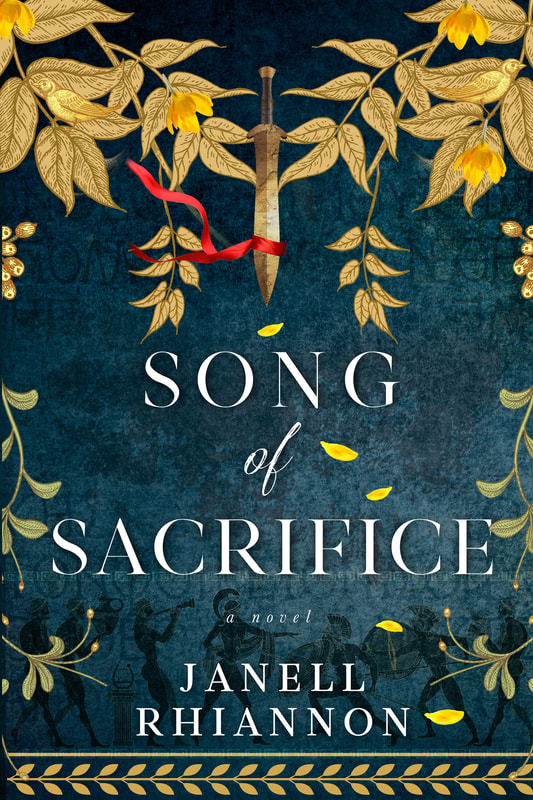
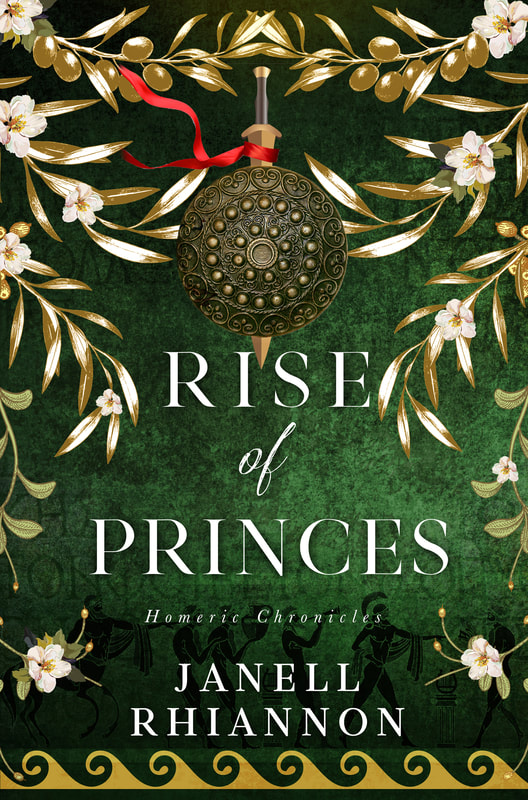
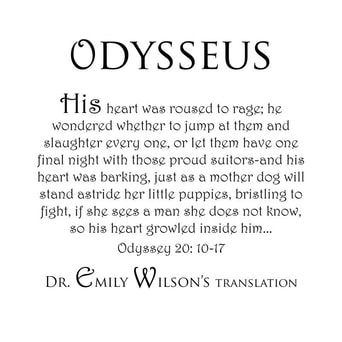

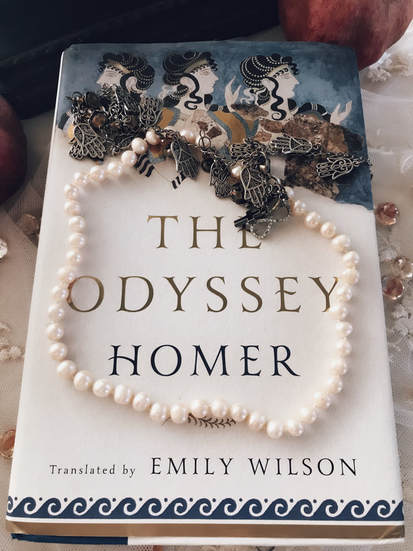

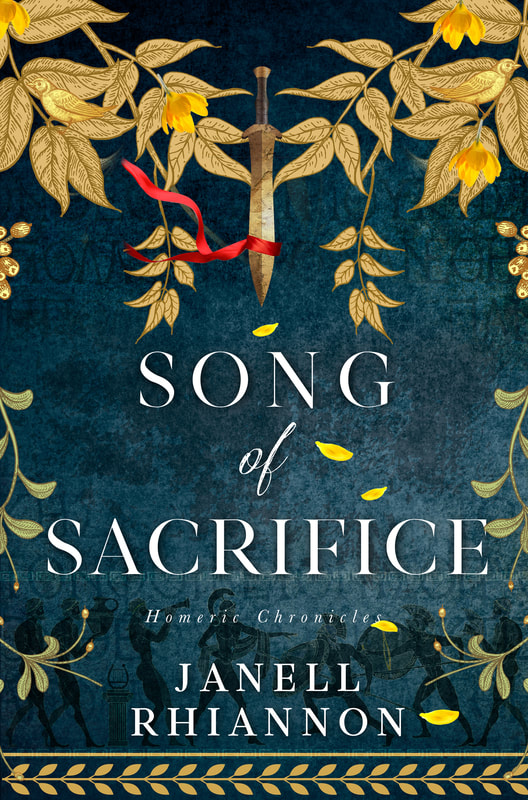
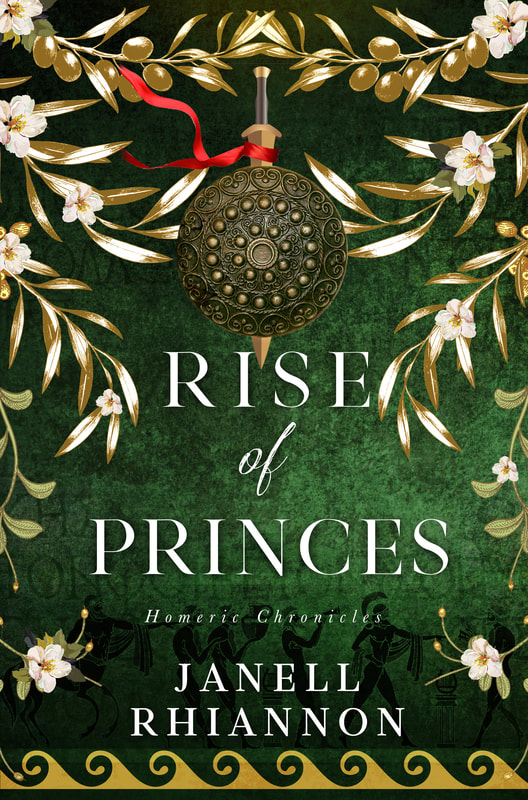
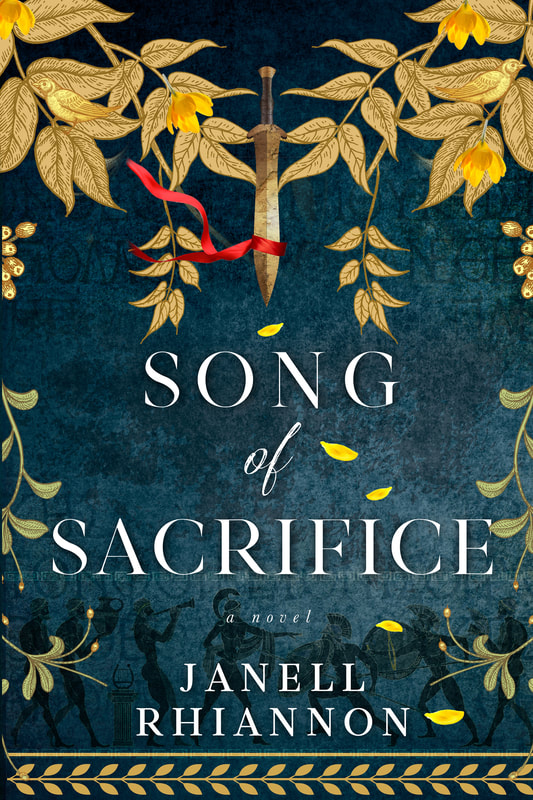
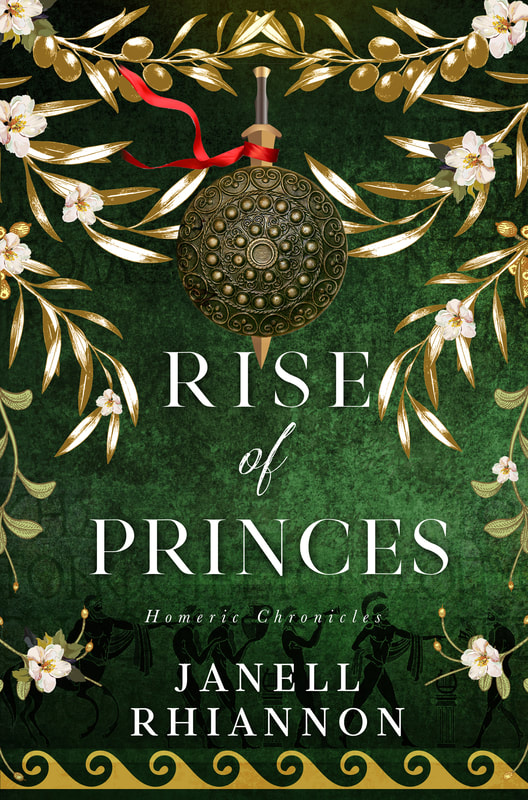
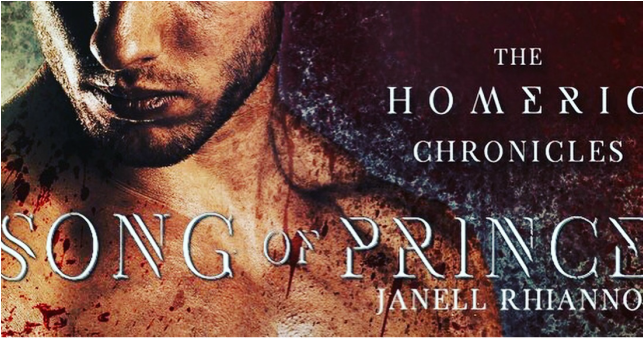



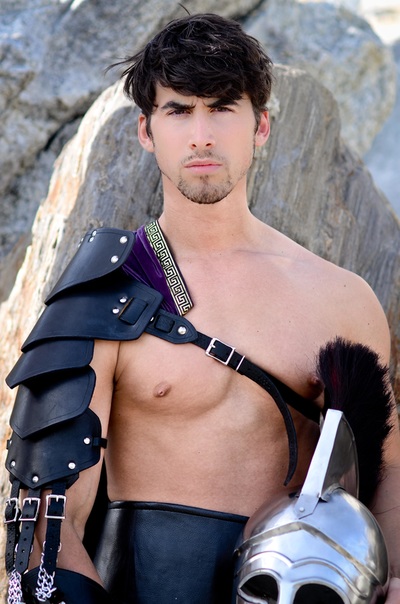


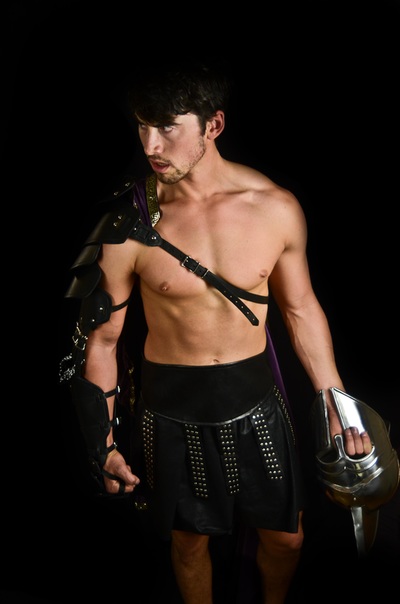
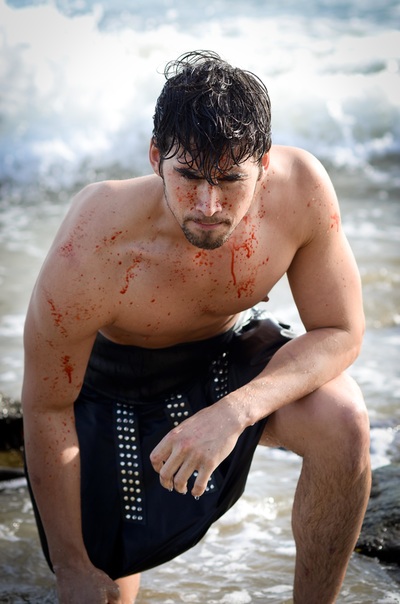
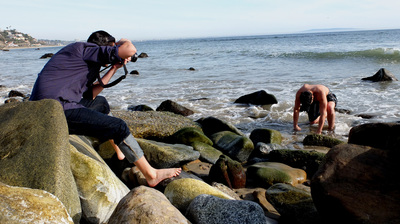

 RSS Feed
RSS Feed